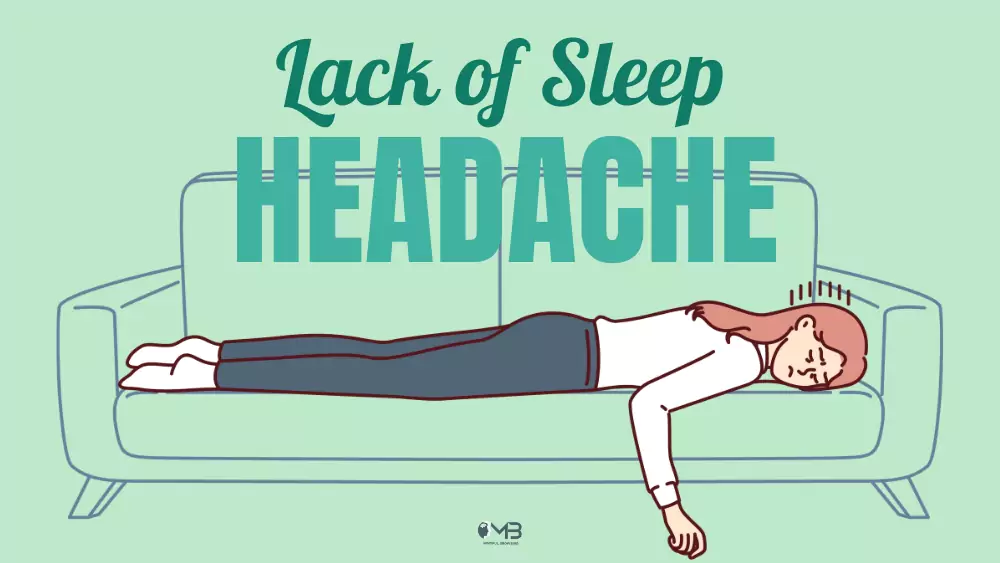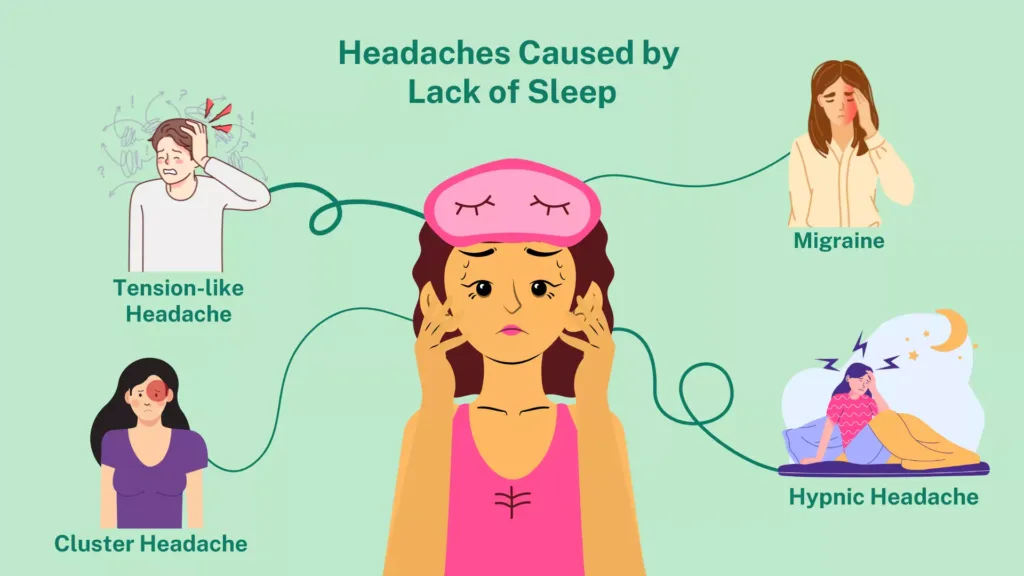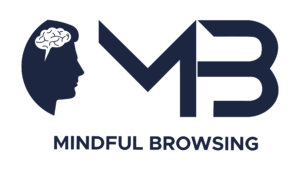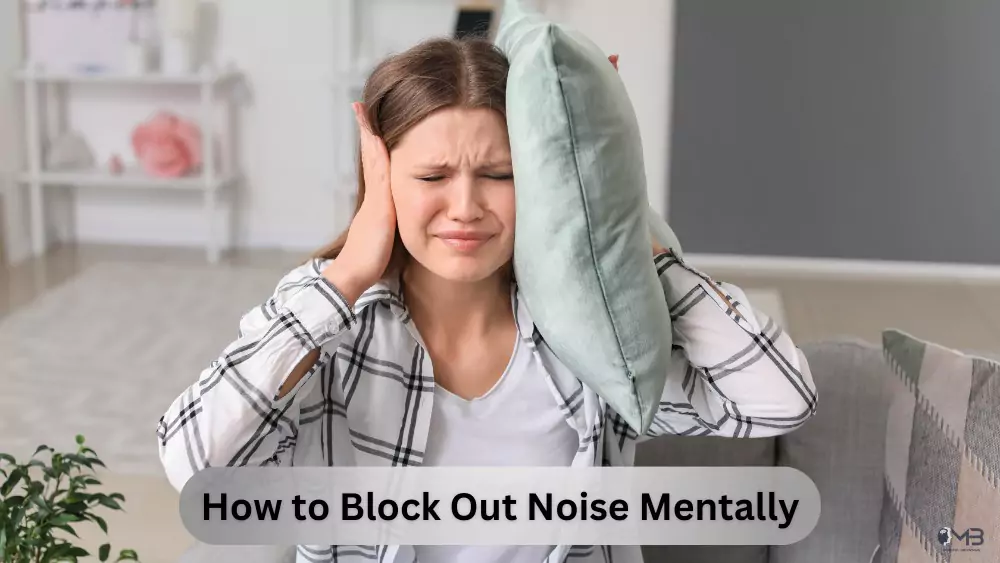
Not getting enough sleep- let’s say hitting the bed past midnight- seems all easy and fun until you wake up with a throbbing headache due to lack of sleep that just makes you crawl back into bed and hibernate. It’s a vicious cycle. One that leaves you all groggy, irritable, and unable to function. But why does it happen? Let’s dive into sleep deprivation headaches and how to break this painful cycle.
Many health experts have emphasized the importance of getting a restful sleep every night. Dr. David F. Dinges, a Professor and Chief of the Division of Sleep and Chronobiology in the Department of Psychiatry at the University of Pennsylvania Perelman School of Medicine, said that sleep is not an optional activity. Almost 50 to 70 million Americans are suffering from sleep disorders, which is affecting their quality of life. One major consequence is sleep deprivation headaches. Based on several research studies, it is confirmed that headaches and sleep deprivation are strongly connected.
If you do not get Rapid Eye Movement (REM) sleep properly, it can result in more painful headaches. Disrupted sleep can also increase a person’s sensitivity to pain stimulation, i.e., they may feel headaches and muscular pain more strongly. Sleep deprivation headaches make you incapable of even carrying on with daily life. If that sounds like your day-to-day situation, read on. In this piece, we have discussed how you can treat lack of sleep headaches and improve your health.
How Many Hours of Sleep Do We Need?
Many experts agree that 7-8 hours of sleep is the sweet spot. However, the required sleep duration varies by age and gender. WebMD has provided updated data on how much sleep you need based on different age groups.
| Age Group | Hours of Sleep Needed |
| Newborns (0-3 months) | 14-17 |
| Older infants (4-11 months) | 12-15 |
| Toddlers (1-2 years) | 11-14 |
| Preschoolers (3-5 years) | 10-13 |
| School-age kids (6-13 years) | 9-11 |
| Teenagers (14-17 years) | 8-10 |
| Adults (18-64 years) | 7-9 |
Not getting enough sleep at night can result in strong mental and physical exhaustion. Mood swings become so prominent that you struggle to control your anger.
Can Lack of Sleep Cause Migraine and Tension-Like Headaches?

Yes, sleep deprivation is the major cause of migraines and tension-like headaches. Micro naps and home remedies may help, like salt water for headaches. However, it’s not a long-term solution. Sometimes, you still feel the headache even after taking a nap.
To permanently treat your headaches, you need to address the root cause: a disturbed sleep cycle. Improve your sleep schedule as well as sleep quality to get rid of such headaches. Lack of sleep also causes hypnic headaches and cluster headaches. All these headaches arise for the same reason but differ a lot in their symptoms.
The following are the most common symptoms of headaches from lack of sleep.
1. Tension-like Headache
You feel dull and aching pain, which is not severe but moderate. It can start as a mild headache but slowly gains intensity later in the day. Its duration can last from a few hours to several days.
2. Migraine
You start feeling throbbing pain on the one side of your head. This pain can worsen with physical activity or movement. Your sensitivity to light and sound increases, and you start seeking quiet, dark corners of the room to relax.
3. Cluster Headache
It feels like a stabbing pain around the eye area. You start feeling a piercing or burning sensation that lasts for a few minutes to hours. If not addressed promptly, it can spread to the jaws and cheeks.
4. Hypnic Headache
It is the rarest type of headache you feel when you sleep, and it causes you to wake up instantly. It can start during the night, often between 1 and 3 a.m., and may happen several times a week. Some people can also feel nausea during a hypnic headache.
I experienced headaches during my semester exams last year. Since I barely slept during those two weeks, I used to suffer from strong headaches now and then. The pain was so intense that I struggled to focus on my study material. After days of suffering, I realized I needed rest more than anything. I finally got some sleep, and the headaches started to fade. After that incident, I started asking experts for actionable advice to cure this condition and implemented it in my routine to avoid this unbearable pain in the future.
Let me share them with you!
Remedies To Prevent Sleep depreviation Headaches
You must make some significant lifestyle changes to avoid this suffering. Since your sleep has been disturbed for a long time, you might struggle to get it back on track, but these helpful tips will make the process easy for you. Go to bed at a consistent time every night and avoid scrolling social media before sleeping.
- Don’t sleep uncomfortably. Use blackout curtains to block light and make the bed comfy enough to promote better sleep.
- Listen to green sounds or brown sounds to relax. It will stop you from overthinking as well.
- Strictly manage your diet. Avoid taking caffeine-based drinks like tea and coffee before bed.
- Use essential oils if you are feeling mild headaches to avoid sleep disruptions.
- Turn off electronic gadgets like phones and laptops.
- Try yoga, gratitude meditation, and journaling during the day to clear your mind. Otherwise, negative thoughts and stress won’t let you sleep at night.
To Summarize It:
Up until now, you must have gotten a clear answer to your question: “Can you get a headache from lack of sleep? “. Headaches and migraine due to sleeplessness or insomnia are a reality that everyone faces at least a few times in their lives. The best way to avoid them is to maintain a balanced sleeping schedule. Disturbed sleep will only shatter your mind and body health, eventually damaging your overall life.






